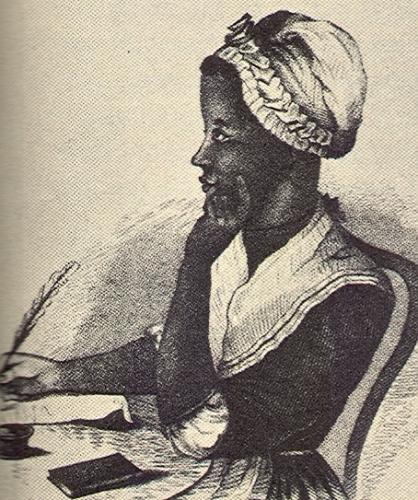 |
LITR 4231 Early American
Literature Sample Research Posts 2014 (research post assignment) Research Post 2 |
 |
Kelly Santos
The Pursuit of the “Pursuit of Happiness”
As discussed in my previous research post, the Enlightenment period of reason influenced much of Jefferson’s writings and way of thinking. I have sought to further my understanding of two questions: 1) what evidence is there of Enlightenment influence in Thomas Jefferson’s writings in the Declaration of Independence and 2) is there an identifiable reason why Jefferson opted to use “happiness” instead of “property” when authoring the Declaration of Independence?
The first article called, The Declaration
of Independence and Natural Rights, provides an excellent breakdown of how
Enlightenment thinkers (and other sources) influenced Jefferson and the
Declaration. The article first affirmed my belief that the Enlightenment
influenced Jefferson. It noted that Jefferson, referring to Enlightenment ideas
of the time, stated that he had adopted the “harmonizing sentiments of the day.”
The article then delves into some specific examples of this influence by pointed
to specific language that was borrowed from previous Enlightenment thinkers,
such as the founder of the movement, John Locke.
It pointed out that Thomas Jefferson derived the most famous and powerful lines
of the Declaration of Independence from John Locke. In Locke’s
Second Treatise of Government in
1689, Locke wrote that all individuals are “created equal” and born with
inalienable “natural rights.” Among these most fundamental rights were the
rights to “life, liberty, and property.” The exact language found regarding all
people being created equal and with certain rights is readily apparent from a
quick reading of the Declaration of Independence. However, as mentioned, I am
personally curious as to why happiness was substituted for property.
The article
The Declaration of Independence and
Natural Rights explains that in that context (with Locke) property meant
more than mere physical property but also the right to a personal wellbeing.
That description sounds similar to the definition of happiness, which made me
think that perhaps the substitution was just a matter of semantics. Then I
recalled that Jefferson didn’t create the Declaration of Independence in a
vacuum. Indeed, he was influenced after reading several other documents of
independence drafted by the other colonies, such as
Virginia Declaration of Rights. I
then looked to that document for anwers.
In the article, Pursuit of Happiness,
the author makes it clear that such “happiness” language was likely adopted by
George Mason’s Virginia Declaration of
Rights. When I read Mason’s work I noticed that it referenced the “the
enjoyment of life and liberty, with the means of acquiring and possessing
property, and pursuing and obtaining happiness and safety.” Seeing that
Jefferson had omitted a portion of that phrase, I figured I was bound to come
across an explanation. Then I discovered that there is no explanation.
In Pursuit of Happiness, the author
writes that Jefferson never explained his decision to use the word “happiness.”
I hit a dead end with that source, but it still seemed like there should’ve been
an explanation. According to the first article it appears that (in the proper
context) property and happiness possessed similar meanings. Yet, one has to
question why both words would be juxtaposed in Mason’s writings if they
basically meant the same thing and not in Locke’s?
This led me to the theory that the selection of the word happiness was chosen
for stylistic purposes. Perhaps Jefferson just thought that the more succinct
“happiness” sounded better? That theory makes sense when one considers how
long-winded the above quoted sentence is of Mason’s writing. Since Thomas
Jefferson made no special notation or comments as to why he chose “happiness”
and it has such a similar meaning to property, I think that the decision to use
happiness was probably a stylistic preference. In any event, it is clear that
there is evidence of the influence of the Enlightenment in the Declaration of
Independence because almost the exact language was taken from the most
influential Enlightenment texts and transplanted in the Declaration of
Independence (as well as many others).
Works Cited
Bill of Rights (1688). Accessed on April 17, 2014.
http://www.thegloriousrevolution.org/docs/declarationofrights.htm
Constitutional Rights Foundation. The Declaration of Independence and Natural
Rights. Accessed on April 16, 2014.
http://www.crf-usa.org/foundations-of-our-constitution/natural-rights.html
Pursuit of Happiness. Accessed on April 16, 2014.
http://www.monticello.org/site/research-and-collections/pursuit-happiness
Virginia Declaration of Rights. Accessed on April 15, 2014. http://www.archives.gov/exhibits/charters/virginia_declaration_of_rights.html
|
|
|
|

